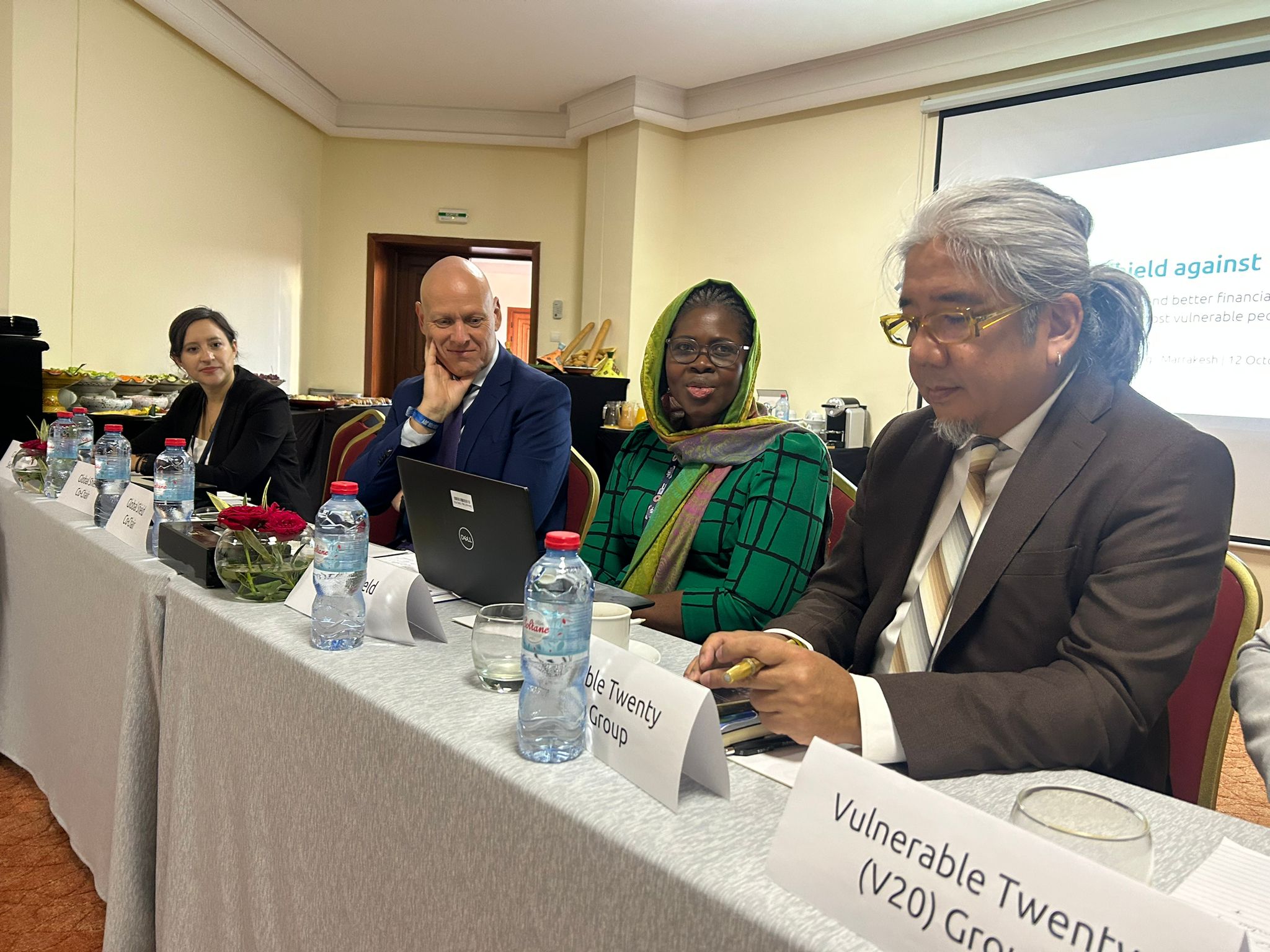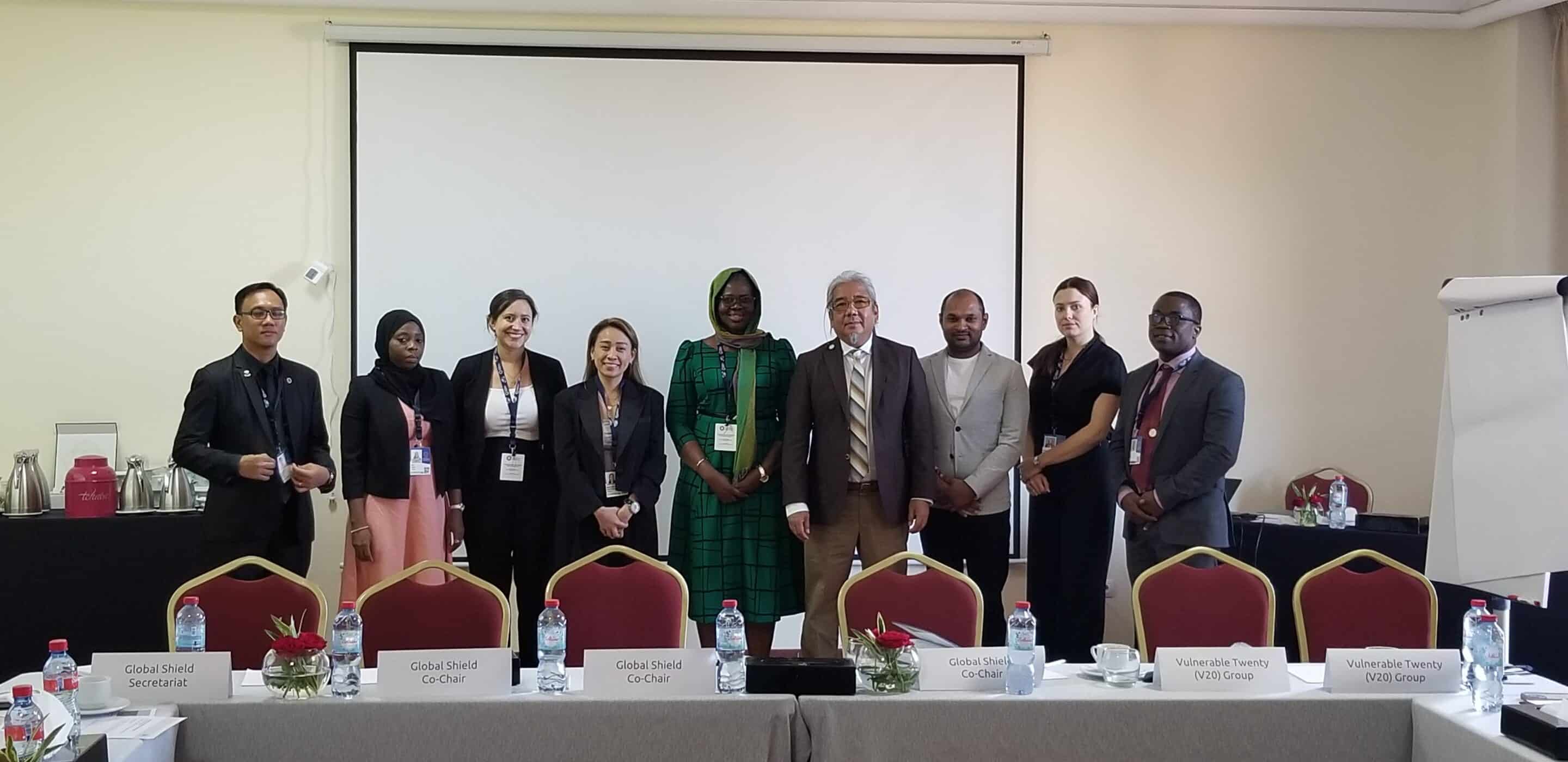At the margins of the World Bank Annual Meetings in Marrakech, high-level representatives of the Global Shield Co-Chairs held a breakfast meeting to discuss lessons learnt from the In-Country Process in Ghana and listen to the needs of countries striving to fortify their resilience against climate-related risks and disasters. The Global Shield Secretariat is committed to continue this series of information and network meetings with interested partner countries to foster collaboration and knowledge exchange. These meetings enable a diverse group of interested countries to come together and engage on experiences and in meaningful dialogues on approaches to climate and disaster risk financing.
During the gathering, Dirk Meyer, Director General on Climate at the German Federal Ministry of Economic Cooperation and Development, elaborated on the key activities the Global Shield has kick-started since its launch at COP27, including setting up the governance and financing structure, developing guidelines for the In-Country Process – the core of the Global Shield’s work – and initiating activities in the pathfinder country Ghana. He applauded the strong interest of Ministries of Finance to take the lead on pre-arranged financing for climate risks. Sauda Ahmed Seinu, Senior Advisor to the Executive Director, World Bank, Government of Ghana, Presidency of the V20, highlighted the urgent need for trigger-based and pre-arranged finance against climate risks to protect vulnerable countries and communities that are affected the most. She acknowledged that the Global Shield addresses these needs by providing tailor-made support packages.

From left to right: Jennifer Phillips (Global Shield Secretariat), Dirk Meyer (BMZ), Sauda Ahmed Seinu (Gov. of Ghana), Red Constantino (V20 Secretariat)
Dr Eric Twum, Liaison Officer at the Vulnerable Twenty (V20) Group, shared lessons learnt and next steps from the In-Country Process in Ghana, providing an illustration of the different steps, challenges, and opportunities that countries may face. He elaborated that the In-Country Process follows a country-led approach, where Ghana takes the lead on bringing stakeholders together to analyse gaps and review existing structures to address climate risks. As part of the current stocktaking process, Ghana aims to harmonise and complement existing structures, as well as identify capacities for climate insurance. The first country consultations took place in July 2023, followed by a technical consultation in October. The second workshop is planned for November to inform the submission of Ghana’s Request for Support to the Global Shield. Overall, Ghana greatly appreciates being part of the Global Shield and is convinced that the interventions of the Global Shield will have a positive effect on people’s lives. The devastating floods that hit the Volta region in Ghana in October 2023 underline the urgent need of action against coastal flooding.
Representatives from the Ministry of Finance from the Global Shield pathfinder country The Philippines re-iterated their strong interest to kick-off the In-Country Process in due course. They shared already existing structures, such as the Roadmap for Financial Sustainability as well as guidance notes for recovery and preparedness that could contribute to the process. Similarly, The Gambia already identified the agricultural sector as key sector that is most affected by climate risks and disasters. Initiatives like the National Climate Change Committee are already in place and committed to drive the Global Shield’s multi-stakeholder consultations. Together with the African Development Bank, The Gambia is also already working on a Disaster Risk Financing Strategy, which could feed into the In-Country Process.

Representatives from The Philippines, The Gambia, Ghana, the Global Shield Secretariat, and the V20 Secretariat
